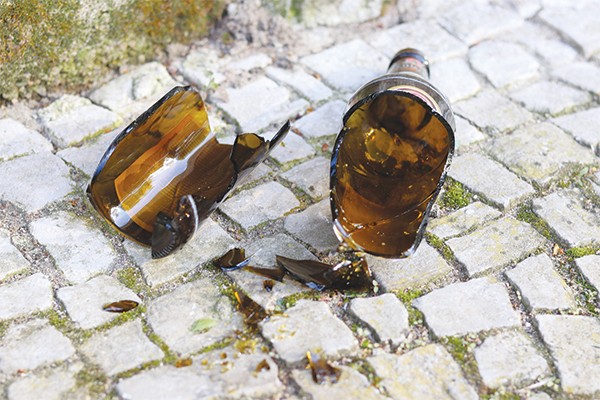A new initiative is being launched during this year’s Re-Orientation week that will ban glass in the North Dunedin area, in the hope of cleaning up the glass that regularly plagues the streets of the city's student quarter.
The initiative continues to be student led, initiated by OUSA following constant complaints about the glass from students and others in the area.
The plan is to move students away from using glass bottles and towards using cans and plastic bottles. Many local liquor stores have got on board with the idea, offering specials on plastic and cans, and so have Campus Watch, which will also promote the purchase of plastic and cans. The initiative has prompted the slogan, ‘pass on glass and crack a can’.
OUSA President Hugh Baird believes this is an extremely promising move, saying “it is heartening to see the bottle stores on board … it’s an incredible sign of goodwill on their behalf,” while also showing that it “is a good way to show that we [students] can look after the area”.
The move also works against a lot of the negative attitudes and stereotypes that seem to be associated with Dunedin’s student population, as well as showing that drastic actions, such as a liquor ban, are not necessarily needed.
Not only is it hoped that the glass ban will greatly improve the appearance of the suburb’s streets, it is also hoped it will make them significantly safer. Baird reported that if the campaign is successful, it is likely that it will continue for the rest of the semester.
Baird has used his Critic President’s column, which is located on the inside back cover of Critic, multiple times to speak about the problem smashed glass is for students living in North Dunedin’s streets, specifically focusing on how frustrating it is “spending three days with tweezers trying to flick that tiny shard from your foot”.







